Asian Interests and the Path Forward in the New Arctic
In light of common interests and prospects for cooperation in the Arctic, this international virtual symposium convened representatives, scholars, and experts from Japan, the People’s Republic of China, the Republic of Korea, and the United States to share their countries’ unique Arctic interests and policies. "Asian Interests and the Path Forward in the New Arctic" was hosted by the Asia Program and Polar Institute of the Woodrow Wilson International Center for Scholars from 6:00 – 9:00 PM EST on February 8th and 9th, 2021. In the video box above, Day 2 of the symposium plays immediate after Day 1.
Please find the symposium summary here.
Quotes
Senator Lisa Murkowski
“I think it is fair to say that geography has not discouraged other nations from looking to the Arctic for opportunities whether it be in the area of shipping, whether it be exchange of research or what we are doing on environmental initiatives or climate initiatives. The level of cooperation that we see coming out of the Arctic is something to be recognized.”
“To some, it might make it sound like the Arctic is some kind of a ‘Wild West’, that there’s no structure out there, that it’s been this place that’s been frozen in time and now as we’re seeing the impacts of global climate change and you’ve got shipping lanes that are opened, you have access to different resources that, somehow or other [are] all a free for all up there—far, far, far from the truth. There are, there have been, and there will continue to be rules and structures and norms.”
“If we want to have cooperation, we have to act cooperatively. If we want peace in a region, then we have to be able to have dialogue with people in the region and those who are not in the region but who are watching the region.”
Mr. SUZUKA Mitsuji
“Three basic elements to realize our ideal Arctic. Firstly, clarifying the mechanism of environmental changes in the Arctic. Secondly, pursuing sustainable economic activities in the Arctic while respecting the ecosystem and the lives of Indigenous peoples. Lastly, but not the least, ensuring the rule of law.”
“Japan will promote further dialogue and cooperation with relevant countries, most importantly Arctic Council member states and other Observer states and also the communities of the Indigenous peoples living in [the] arctic is very much essential.”
“Japan [and] some of the other Observer countries can make contributions to a better future of the Arctic through proactive participation in the Working Groups and Task Forces of the Arctic Council and through bilateral and multilateral dialogues with Arctic Council Member States.”
Mr. GAO Feng
“Connectivity is vital to underpin the economic growth and allow for the delivery of better services to Arctic peoples.”
“China supports the IMO in playing an active role in the formulation of navigation rules for the Arctic and is ready to have more exchanges in this regard within the framework of [the] Arctic Council and other platforms.”
“I was told by environmental experts that thanks to the close cooperation among states, the visibility of sandpipers in China has increased significantly […] The conservation of biodiversity is part of the many transnational issues in the Arctic, and China’s action in this regard demonstrate what we can achieve with close cooperation.”
“I am pleased to see the [Arctic] Council attach more and more importance to the role of the Observers especially because the problems we are facing—the issues we are facing—need more collective actions including—so many. Climate change… migratory birds, plastics: all of these we are dealing with are kind of—I would say—global issues.”
Mr. LIM Hoonmin
“What happens in the Arctic doesn’t stay in the Arctic. The Arctic has a critical direct impact on Korea, like severe climate changes on the Korean peninsula resulting from Arctic warming.”
“In addition to these multilateral partnerships, Korea is operating bilateral consultations with six [Arctic] Council Member countries in order to make up for [the] limitations of being an Observer.”
“The fisheries agreement, which was being finalized recently among the five coastal countries […] as well as Korea, China and Japan and the EU as well, is a very, very good example [of] how this region should be involved in responding to this new situation.”
Dr. Atsushi SUNAMI
"We are now pushing forward on advancing of Japan’s Arctic research under the new flagship program of ArCS. ArCS is Japan’s national flagship Arctic research project that is called Arctic Challenge for Sustainability which started in the first phase in September 2015 along with the launch of Japan’s Arctic policy.”
“Last December, the government of Japan passed the budget to build an Arctic research vessel formally and that will start its construction this year and then hopefully to have a maiden voyage in 2025.”
“As you see the MOSAiC is sort of another example of sharing the icebreaking capability and research platform, and now we are building a new icebreaker.”
Minister Yoko KAMIKAWA
“I believe that the achievement of the SDGs in the Arctic is a key concept for tackling a wide range of issues in the Arctic.”
“The Arctic region still has so many areas where our vacuum in observation data, that we lack of scientific knowledge regarding the Arctic compared to other ocean areas. It is urgent to expand observations and research further.”
“The Japanese government has decided to build an Arctic research vessel to serve as an international platform for Arctic research. The construction of the vessel will begin as soon as the diet approves the government’s budget draft.”
“Maritime transport use, linking East Asia and Europe, through the Arctic sea route can shorten the voyage to about 60% with a lower risk of piracy, compared to the southern sea route, via the Malacca Straights and the Suez Canal.”
Michael Perkinson
“The geopolitical rivalry between China and India will very much inform how India invests. India of course has enormous limitations based upon its relatively low national income level and enormous population. Central Asia—I think a number of those states are going to start investing much like Middle Eastern countries did twenty years ago, I think that they will become forces to be reckoned with.”
“We probably need to re-articulate investment hypothesis in the region in order to overcome geopolitical rivalry—if it’s a three-way scramble between the United States, Russia, and China in the Arctic, then investors won’t want that risk, so we need to assuage investors or get them comfortable with that risk.”
“I’m not here to support or advocate on behalf of the extractive industries but in a period of time where there’s a scramble to secure safe and reliable access to rare earths so we can all have mobile telephones; the Arctic presents that opportunity as well.”
Tadashi Maeda
“The first telephone call between Prime Minister Suga and President Biden most recently—the two leaders agreed to promote this initiative—the Free and Open Indo-Pacific, and the terms have been fixed already to use these terms. But having said that, I think that there’s some change on the focus from the Biden administration.” [1:06:15-1:06:48]
“Geographically, it is still not so clear that the Arctic will be a part of that, but I believe that because of the strategic sense, the Arctic can be a part of the cooperation of the Free and Open Indo-Pacific initiative.”
“I recommend the U.S. to make their own capability—ship-building capability with icebreaking capability. In that sense, I think that piece of legislation, which is the Jones Act, can be a stumbling block to develop—it is a very protectionist style."
Introductions

US Ambassador-at-Large for Arctic Affairs; Former Chair, US Arctic Research Commission


Keynote Speakers


Moderators


Former Acting Deputy Assistant Secretary for Oceans and Fisheries and Director for Ocean and Polar Affairs, US Department of State
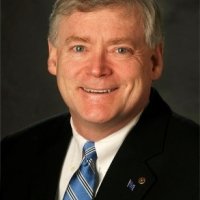
former Lieutenant Governor, State of Alaska; former Chair, U.S. Arctic Research Commission

Fellow, Center for Arctic Study & Policy, U.S. Coast Guard Academy
Panelists
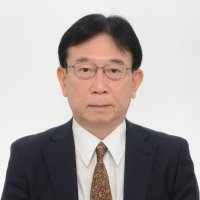
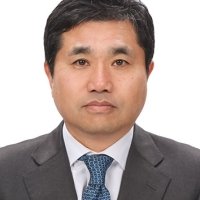
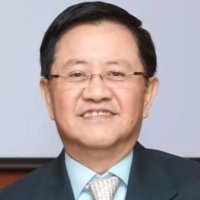

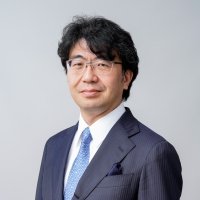
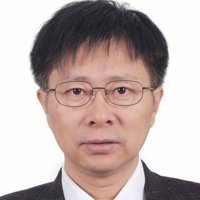

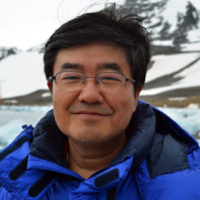
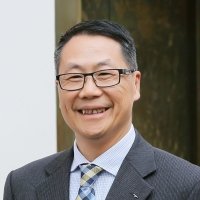

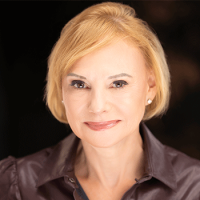
Author, Threat Multiplier: Climate, Military Leadership & the Fight for Global Security.


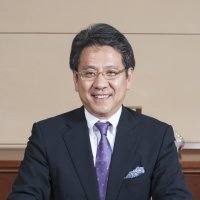

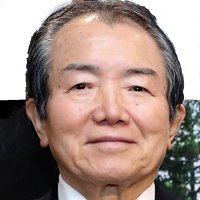
Hosted By

Polar Institute
Since its inception in 2017, the Polar Institute has become a premier forum for discussion and policy analysis of Arctic and Antarctic issues, and is known in Washington, DC and elsewhere as the Arctic Public Square. The Institute holistically studies the central policy issues facing these regions—with an emphasis on Arctic governance, climate change, economic development, scientific research, security, and Indigenous communities—and communicates trusted analysis to policymakers and other stakeholders. Read more


Indo-Pacific Program
The Indo-Pacific Program promotes policy debate and intellectual discussions on US interests in the Asia-Pacific as well as political, economic, security, and social issues relating to the world’s most populous and economically dynamic region. Read more


Kissinger Institute on China and the United States
The Kissinger Institute works to ensure that China policy serves American long-term interests and is founded in understanding of historical and cultural factors in bilateral relations and in accurate assessment of the aspirations of China’s government and people. Read more


China Environment Forum
China’s global footprint isn’t just an economic one, it’s an environmental one. From BRI investments in Africa and Asia to its growing presence in Latin America, understanding China’s motivations, who stands to gain - and who stands to lose - is critical to informing smart US foreign policy. Read more
